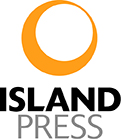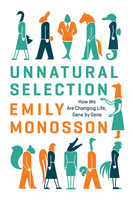
Island Press began with a simple idea: knowledge is power—the power to imagine a better future and find ways for getting us there. Founded in 1984, Island Press’ mission is to provide the best ideas and information to those seeking to understand and protect the environment and create solutions to its complex problems.
Showing 226-240 of 330 items.
The End of Automobile Dependence
How Cities are Moving Beyond Car-Based Planning
By Peter Newman and Jeffrey Kenworthy
Island Press
In The End of Automobile Dependence, Newman and Kenworthy look at how we can accelerate a planning approach to designing urban environments that can function reliably and conveniently on alternative modes. They consider a refined and more civilized automobile playing a very much reduced and manageable role in urban transportation. The authors examine the rise and fall of automobile dependence using updated data on 44 global cities to better understand how to facilitate and guide cities to the most productive and sustainable outcomes.
This is the final volume in a trilogy by Newman and Kenworthy on automobile dependence (Cities and Automobile Dependence in 1989 and Sustainability and Cities: Overcoming Automobile Dependence in 1999). Like all good trilogies this one shows the rise of an empire, in this case that of the automobile, the peak of its power, and the decline of that empire.
This is the final volume in a trilogy by Newman and Kenworthy on automobile dependence (Cities and Automobile Dependence in 1989 and Sustainability and Cities: Overcoming Automobile Dependence in 1999). Like all good trilogies this one shows the rise of an empire, in this case that of the automobile, the peak of its power, and the decline of that empire.
Nature's Fortune
How Business and Society Thrive By Investing in Nature
By Mark R. Tercek and Jonathan S. Adams
Island Press
In Nature’s Fortune, Mark Tercek, CEO of The Nature Conservancy and former investment banker, and science writer Jonathan Adams argue that nature is not only the foundation of human well-being, but also the smartest commercial investment any business or government can make. The forests, floodplains, and oyster reefs often seen simply as raw materials or as obstacles to be cleared are, in fact, as important to our future prosperity as technology, law, or business innovation. With stories from the South Pacific to the California coast, the Andes to the Gulf of Mexico, Nature’s Fortune shows how viewing nature as green infrastructure allows for breakthroughs not only in conservation, but in economic progress as well. Organizations obviously depend on the environment for key resources—water, trees, and land. But they can also reap substantial commercial benefits in the form of risk mitigation, cost reduction, new investment opportunities, and the protection of assets. Once leaders learn how to account for nature in financial terms, they can incorporate that value into the organization’s decisions and activities, just as habitually as they consider cost, revenue, and ROI.
A must-read for business leaders, CEOs, investors, and environmentalists alike, Nature’s Fortune offers an essential guide to the world’s economic—and environmental—well-being.
A must-read for business leaders, CEOs, investors, and environmentalists alike, Nature’s Fortune offers an essential guide to the world’s economic—and environmental—well-being.
Artful Rainwater Design
Creative Ways to Manage Stormwater
By Stuart Echols and Eliza Pennypacker
Island Press
Stormwater management as art? Absolutely. Rain is a resource that should be valued and celebrated, not merely treated as an urban design problem—and yet, traditional stormwater treatment methods often range from ugly to forgettable. Artful Rainwater Design shows that it’s possible to effectively manage runoff while also creating inviting, attractive landscapes.
This beautifully illustrated, comprehensive guide explains how to design creative, yet practical, landscapes that treat on-site stormwater management as an opportunity to enhance site design. Artful Rainwater Design is a must-have resource for landscape architects, urban designers, civil engineers, and architects looking to create landscapes that celebrate rain for the life-giving resource it is-- and contribute to more sustainable, healthy, and even fun, built environments.
This beautifully illustrated, comprehensive guide explains how to design creative, yet practical, landscapes that treat on-site stormwater management as an opportunity to enhance site design. Artful Rainwater Design is a must-have resource for landscape architects, urban designers, civil engineers, and architects looking to create landscapes that celebrate rain for the life-giving resource it is-- and contribute to more sustainable, healthy, and even fun, built environments.
State of the World 2015
Confronting Hidden Threats to Sustainability
By The Worldwatch Institute
Island Press
Roads Were Not Built for Cars
How cyclists were the first to push for good roads & became the pioneers of motoring
By Carlton Reid
Island Press
In Roads Were Not Built for Cars, Carlton Reid reveals the pivotal—and largely unrecognized—role that bicyclists played in the development of modern roadways. Reid introduces readers to cycling personalities, such as Henry Ford, and the cycling advocacy groups that influenced early road improvements, literally paving the way for the motor car. When the bicycle morphed from the vehicle of rich transport progressives in the 1890s to the “poor man’s transport” in the 1920s, some cyclists became ardent motorists and were all too happy to forget their cycling roots. But, Reid explains, many motor pioneers continued cycling, celebrating the shared links between transport modes that are now seen as worlds apart. In this engaging and meticulously researched book, Carlton Reid encourages us all to celebrate those links once again.
Tactical Urbanism
Short-term Action for Long-term Change
By Mike Lydon and Anthony Garcia
Island Press
Future Arctic
Field Notes from a World on the Edge
Island Press
In one hundred years, or even fifty, the Arctic will look dramatically different than it does today. As polar ice retreats and animals and plants migrate northward, the Arctic landscape is morphing into something new and very different from what it once was. While these changes may seem remote, they will have a profound impact on a host of global issues, from international politics to animal migrations. In Future Arctic, journalist and explorer Edward Struzik offers a clear-eyed look at the rapidly shifting dynamics in the Arctic region, a harbinger of changes that will reverberate throughout our entire world. A unique combination of extensive on-the-ground research, compelling storytelling, and policy analysis, Future Arctic offers a new look at the changes occurring in this remote, mysterious region and their far-reaching effects.
Unnatural Selection
How We Are Changing Life, Gene by Gene
Island Press
Gonorrhea. Bed bugs. Weeds. Salamanders. People. All are evolving, some surprisingly rapidly, in response to our chemical age. In Unnatural Selection, Emily Monosson shows how our drugs, pesticides, and pollution are exerting intense selection pressure on all manner of species. And we humans might not like the result.
Monosson reveals that the very code of life is more fluid than once imagined. When our powerful chemicals put the pressure on to evolve or die, beneficial traits can sweep rapidly through a population. Species with explosive population growth—the bugs, bacteria, and weeds—tend to thrive, while bigger, slower-to-reproduce creatures, like ourselves, are more likely to succumb.
Unnatural Selection is eye-opening and more than a little disquieting. But it also suggests how we might lessen our impact: manage pests without creating super bugs; protect individuals from disease without inviting epidemics; and benefit from technology without threatening the health of our children.
Monosson reveals that the very code of life is more fluid than once imagined. When our powerful chemicals put the pressure on to evolve or die, beneficial traits can sweep rapidly through a population. Species with explosive population growth—the bugs, bacteria, and weeds—tend to thrive, while bigger, slower-to-reproduce creatures, like ourselves, are more likely to succumb.
Unnatural Selection is eye-opening and more than a little disquieting. But it also suggests how we might lessen our impact: manage pests without creating super bugs; protect individuals from disease without inviting epidemics; and benefit from technology without threatening the health of our children.
Public Produce
Cultivating Our Parks, Plazas, and Streets for Healthier Cities, Revised Edition
Island Press
An updated look at the advantages and possibilities of urban agriculture in public spaces.
Urban Acupuncture
By Jaime Lerner
Island Press
During his three terms as mayor of Curitiba, Brazil in the 1970s and ‘80s, architect and urbanist Jaime Lerner transformed his city into a global model of the sustainable and livable community. Through his pioneering work, Lerner has learned that changes to a community don’t need to be large-scale and expensive to have a transformative impact—in fact, one block, park, or a single person can have an outsized effect on life in the surrounding city. In Urban Acupuncture, his first work published in English, Lerner celebrates these “pinpricks” of urbanism—projects, people, and initiatives from around the world that ripple through their communities to uplift city life. With meditative and descriptive prose, Lerner brings readers around the world to streets and neighborhoods where urban acupuncture has been practiced best, from the bustling La Boqueria market in Barcelona to the revitalization of the Cheonggyecheon River in Seoul, South Korea. Through this journey, Lerner invites us to re-examine the true building blocks of vibrant communities—the tree-lined avenues, night vendors, and songs and traditions that connect us to our cities and to one another.
Smart Power
Climate Change, the Smart Grid, and the Future of Electric Utilities, Anniversary Edition
Island Press
This pivotal work offers a clear and accessible vision of how we can transform the electric power industry to adapt to twenty-first century challenges.
Connecting to Change the World
Harnessing the Power of Networks for Social Impact
Island Press
Nuts-and-bolts advice for organizations on how to build relationships and create networks to enhance their reach and effectiveness, written by experts in the non-profit world.
Stay Informed
Subscribe nowRecent News













